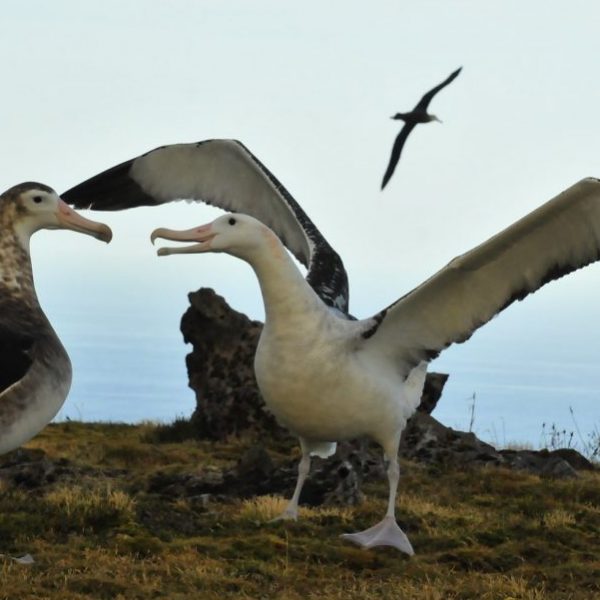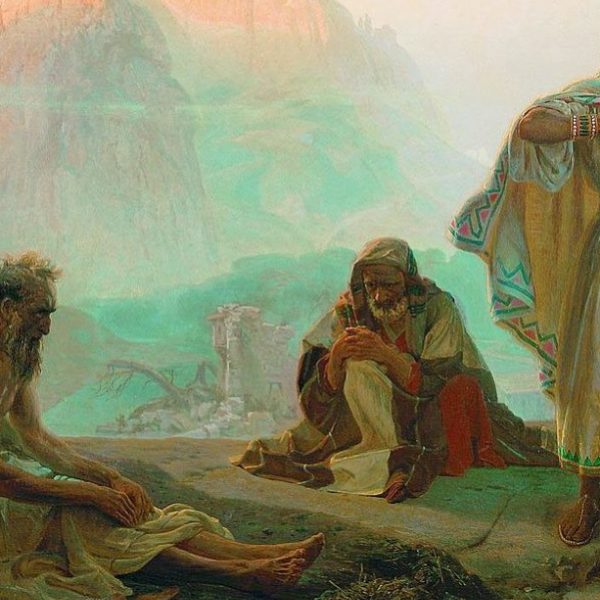Biology’s “Original Sin”
In the epigram to Christian de Duve’s Genetics of Original Sin: The Impact of Natural Selection on the Future of Humanity we find a verse from the book of Genesis in the Hebrew Bible where “the woman” eats the forbidden fruit of the tree, then gives it to the man. This act, said to represent the original sin, will be the leading symbol in de Duve’s account of humanity’s biological course. This is a thoroughly scientific account which employs biblical metaphors to put the story of humanity and biology in a philosophical context.
 For de Duve, natural selection’s drive for competition and survival is the original sin, yet it may prove to be our species’ redemption. (The theological metaphors he uses accord with the high stakes of his claims about the trajectory and future of humanity.) Our original sin is natural selection’s biological initiative that emphasizes gains for survival and flourishing in the short term. As a species we have developed biologically, cognitively, and culturally at lightning speed, acquiring and exploiting resources as hastily as our constraints would allow. As de Duve explains, the world’s resources can no longer support this, and we must use our other advantages as humans to solve the problem. Our primary advantage is the intelligence we developed.
For de Duve, natural selection’s drive for competition and survival is the original sin, yet it may prove to be our species’ redemption. (The theological metaphors he uses accord with the high stakes of his claims about the trajectory and future of humanity.) Our original sin is natural selection’s biological initiative that emphasizes gains for survival and flourishing in the short term. As a species we have developed biologically, cognitively, and culturally at lightning speed, acquiring and exploiting resources as hastily as our constraints would allow. As de Duve explains, the world’s resources can no longer support this, and we must use our other advantages as humans to solve the problem. Our primary advantage is the intelligence we developed.
This intelligence allowed humans to create culture which de Duve explains to us through the biological account. “Between plucking termites with a denuded branch and splitting the atom,” he writes, “between calling the group together under a tree with a howl and singing Saint Matthew’s Passion in the Sistine Chapel, the difference is one of brain size…” The author’s flair for such poetic details puts a spotlight on the subtle dynamic and creative processes of our biological history. It shows us both the mystery and logic of the scientific story. In a sense this account shows that humans are both special and not special as creatures in what we share and do not share with our animal cohorts. “Unlike other living species,” explains de Duve, “they [humans] have not achieved their successes by developing appropriate physical adaptations; they have done it with their intelligence.” Our particular intelligence has set us apart, and de Duve hopes it can help us figure out how to better manage our place on the planet.
De Duve reads this human propensity for competition as a central theme that reoccurs in all expressions of human civilization, showing us how it is born from our genes. In the achievements of human culture, the remarkable advancements, mastery and inventions we have made, even in leisure we may find this impulse of competition for survival. “Even in peace,” writes de Duve, “competition has remained, directly or by proxy, the widely, passionately, and, sometimes, violently practiced form of entertainment… The warring instinct is embedded in human nature.” The author cites war memorials and the wealth of artistic tributes to victory in public monuments scattered through the world.
Our human genetics have gotten us here, and they may get us out. Through the lens of biology, De Duve gives us a sweeping narrative of the rise and potential decline of the human species. While de Duve begins with a reference to the biblical account of original sin, yet another passage from Genesis comes to mind to describe the author’s story: “And God blessed them, and God said unto them, Be fruitful, and multiply, and fill the earth, and subdue it: and have dominion over the fish of the sea, and over the fowl of the air, and over every living thing that moves upon the earth.” Humanity, to the extent that we have subdued the natural world, is a “successful” sort of species. This success is the source of tension and our potential capacity to solve the problem. Appealing to our intelligence as a species, de Duve suggests through this capacity we may be able to overcome our short-sightedness to make the difficult decisions that will allow for a viable future on this planet for those that come after us.




